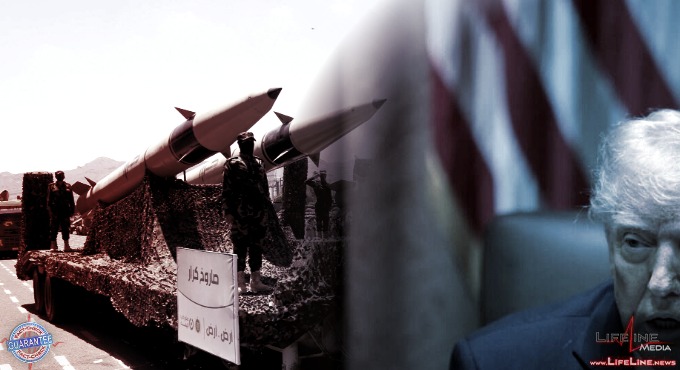
THREAD: chinas military
LifeLine™ Media threads use our sophisticated algorithms to construct a thread around any topic you want, providing you with a detailed timeline, analysis, and related articles.
News Timeline


— Russia ‘dragging feet’ on Ukraine peace deal, says Trump The former president’s remarks follow Russia’s insistence that it will only halt military actions in the Black Sea after sanctions on its banks and exports are removed
— Trump’s top security officials shared military strike plans for Yemen Defense Secretary and others used a secure messaging app to communicate with The Atlantic’s editor-in-chief
— Israel conducts HEAVIEST airstrikes on Gaza since January ceasefire The Israeli military targeted dozens of Hamas sites in a significant escalation of violence early Tuesday

US RESTARTS Military AID to Ukraine: A Bold Move Amid Ceasefire Talks
— The UNITED STATES has agreed to restart military aid and intelligence sharing with Ukraine. This decision comes as Kyiv considers a U.S.-proposed 30-day ceasefire with Russia. The announcement marks a pivotal moment in U.S. support for Ukraine amid ongoing conflict.
A joint statement from U.S. and Ukrainian officials confirmed the resumption of security support. The proposed ceasefire aims to reduce hostilities and open doors for further negotiations between the involved parties, signaling a strategic shift in U.S. foreign policy toward stabilizing Ukraine through diplomacy.
This announcement arrives during heightened tensions between Ukraine and Russia, where continued hostilities threaten regional stability. Since the conflict began, the U.S.’s role has been crucial in providing both military and humanitarian assistance to Ukraine, underscoring its commitment to supporting allies against aggression.

US RESUMES MILITARY AID to Ukraine: A Bold Move Amid Ceasefire Talks
— The Trump administration has announced the immediate resumption of military aid to Ukraine. This decision aligns with Ukraine’s openness to a 30-day ceasefire, signaling a potential shift in the ongoing conflict. Delegations from both sides engaged in discussions for several hours, with more talks planned.
President Donald Trump is set to speak with Russian President Vladimir Putin about a possible ceasefire. Ukrainian President Volodymyr Zelensky has been invited back to the White House for further discussions. The Russian Foreign Ministry expressed willingness for continued dialogue with U.S. representatives, sparking hope for a peaceful resolution that respects Ukraine’s sovereignty.
Safety concerns have escalated following a tragic midair collision involving an Army helicopter and an American Airlines jet near Ronald Reagan Washington National Airport in January 2025. All 67 individuals on board both aircraft perished, prompting NTSB investigator Jennifer Homendy to urge the FAA to implement urgent safety measures immediately.
On the economic front, Asian markets are experiencing significant declines amid global sell-off trends impacting investor confidence worldwide. Japan, South Korea, and Taiwan saw market drops of about 2% as part of this broader financial downturn following the S&P 500’s worst day of the year on March 11th.
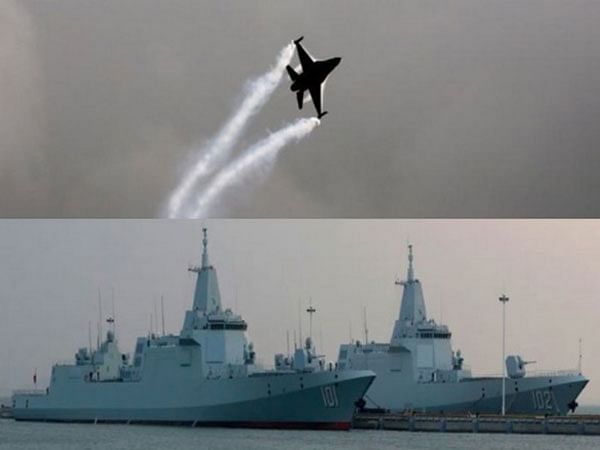
CHINA’S Military Moves Near Taiwan Stir Global Concern
— Taiwan has spotted 11 Chinese military aircraft and 9 vessels close to its territory. This marks a major increase in China’s military activity around Taiwan.
China is also boosting its cognitive warfare against Taiwan by setting up a misinformation unit within its United Front Work Department. This move raises fears of rising tensions in the region.
In other news, AIM Vaccine’s improved diploid rabies vaccine has been approved for clinical trials. The new vaccine promises better results than current options, highlighting AIM’s innovative power on the global stage.

Vance’s BOLD Remarks on Europe’s Military READINESS Stir Controversy
— Senator J.D. Vance sparked a debate with his comments on European military contributions to Ukraine’s security. Speaking on Fox News, he emphasized economic support over troop deployments from countries with limited combat experience. Some viewed his remarks as criticism of Britain and France, despite their active military roles in recent conflicts.
Vance clarified his stance, denying any specific mention of the UK or France while acknowledging their historical alliance with the U.S. He expressed skepticism about smaller European militaries’ effectiveness due to their lack of battlefield experience and equipment concerns.
Highlighting disparities in defense spending among NATO members, Vance noted that while the U.S., UK, France, and Germany invest heavily in defense, other European nations contribute significantly less relative to their GDPs. Countries like Spain and Belgium spend a fraction compared to larger allies, raising questions about fair burden-sharing within NATO.

— Trump hints at military action to secure Panama Canal and Greenland The president-elect emphasized the importance of US control over both regions for national security, stating he won’t dismiss the use of force
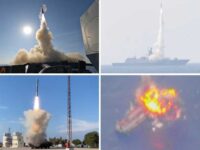
RUSSIA’S Military Drills in Syria: A Powerful Warning to Ukraine
— Russia recently held major military drills around Syria, showing off its naval and air strength. The exercises involved 1,000 personnel, ten ships, and 24 aircraft. This display is seen as support for Syria and a warning to Ukraine.
The Kremlin called the drills “joint” operations that follow international law. Footage showed modern frigates like Admiral Gorshkov with older Syrian missile boats. Russia also tested its Oniks anti-ship cruise missile during these exercises.
A key moment was the launch of a Zircon hypersonic cruise missile from a frigate, praised by President Putin as a “superweapon.” The Zircon can target ships and land installations. Moscow said another launch from the submarine Novorossiysk involved a Kalibir missile, used often against Ukraine.
These missiles worry Kyiv due to their nuclear capabilities and effectiveness in warfare. Ukraine keeps a close watch on Russian Kalibir-capable ships in the Black Sea as part of its defense strategy against Russian aggression.

— Israel Conducts Precision Strikes on Iranian Targets The Israeli military announced it executed three waves of strikes in retaliation for ongoing attacks from the Iranian regime
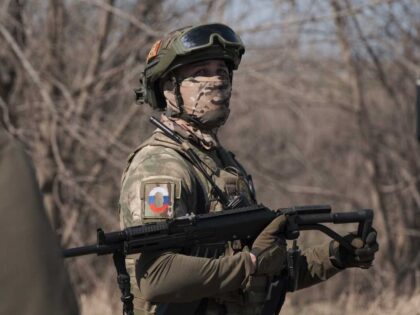
RUSSIA’S Military Losses Soar Amid Ukraine Conflict
— Britain’s Ministry of Defence reports a sharp rise in Russian military casualties, averaging 1,271 per day in September. This marks the highest daily losses since the conflict began. The increase is linked to Ukraine’s counter-invasion efforts and Russia’s aggressive tactics.
The analysis shows Russia’s casualty rate has more than doubled compared to last year’s peaks. Despite harsh winter conditions, there’s no sign of reduced conflict intensity. Over 648,000 Russian casualties are estimated since the war started, based on Ukrainian figures.
Ukraine claims it inflicted over 38,000 casualties on Russian forces in September alone and destroyed thousands of vehicles like tanks and armored units. However, Western sources often highlight Russian losses without comprehensive data on Ukrainian casualties due to limited transparency from Kyiv.
While Ukraine’s reported figures for Russian losses exceed those from Britain’s Ministry of Defence, accurate assessments are tough due to wartime secrecy. President Zelensky dismissed Kremlin claims about Ukrainian casualties as exaggerated lies earlier this year but didn’t disclose specific numbers for his own forces’ losses.
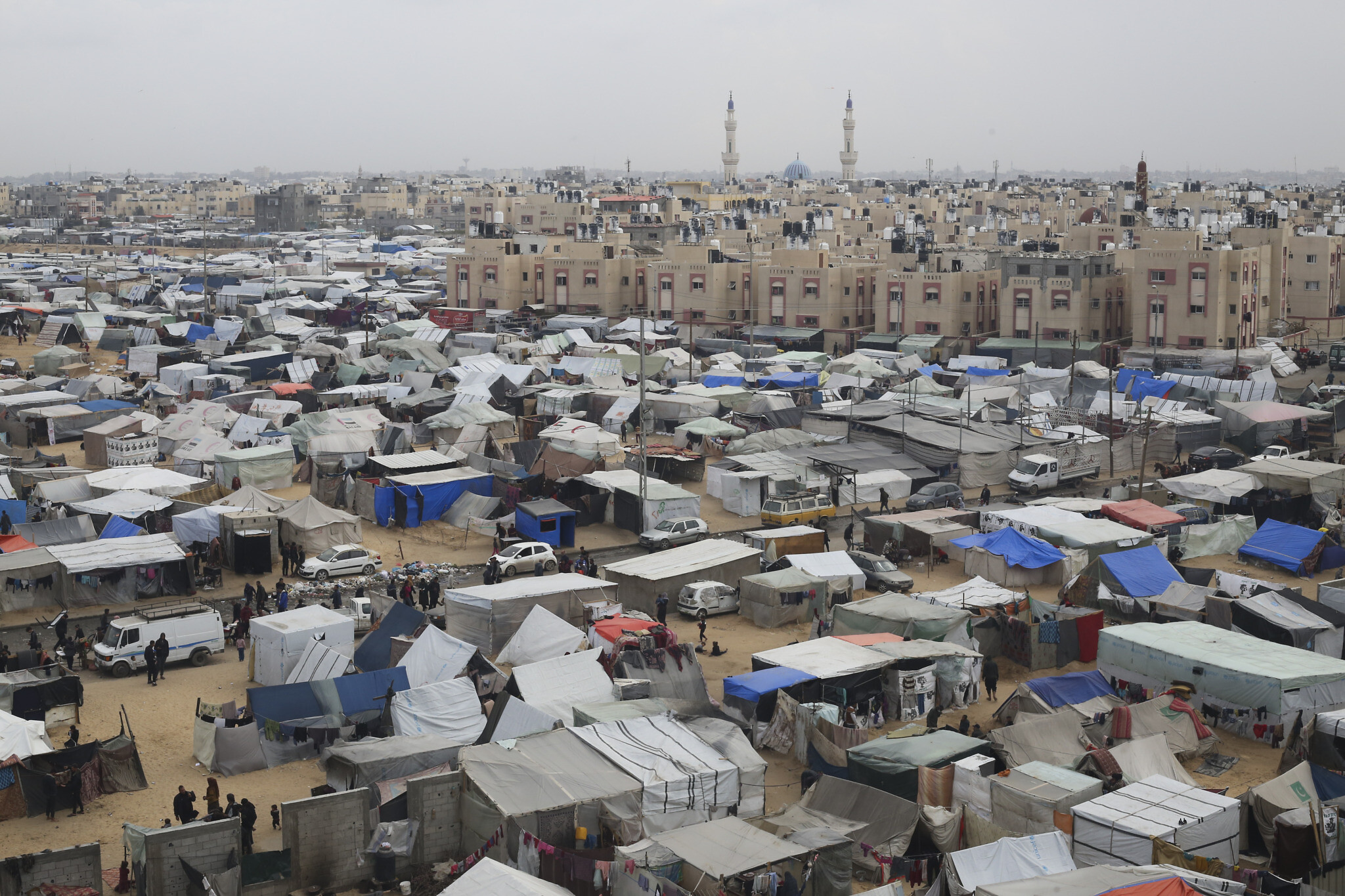
ISRAEL DEFIES US Warnings, Ramps Up Military Strike in Gaza’s Rafah
— Israel has escalated its military actions in Rafah, Gaza, despite U.S. cautions. The Israeli military ordered tens of thousands to leave the area immediately. Rear Adm. Daniel Hagari confirmed that the operations targeted and eliminated numerous militants. This aggressive stance persists even amid international concerns about rising civilian casualties and disruptions to humanitarian aid efforts.
Global protests have ignited as Israel alleges Hamas militants are consolidating in northern Gaza following seven months of ongoing conflict. The United Nations warns that intensifying military activities in Rafah might severely impact humanitarian initiatives and increase civilian fatalities. The closure of the Rafah border crossing complicates aid delivery, heightening regional tensions further.
President Joe Biden has explicitly denied supplying offensive weaponry for operations in Rafah, pointing to credible evidence that Israel might be violating international laws designed to protect civilians during conflict situations. On the other hand, Israeli authorities maintain they adhere strictly to these laws and have implemented advanced warning systems to reduce civilian casualties before launching operations
The crisis deepens as over 1.4 million Palestinians find themselves displaced within Rafah’s confines due to recent evacuations moving populations into areas already heavily affected by conflict. Aid organizations are overwhelmed trying to manage under these challenging circumstances.

RUSSIA’S Nuclear Warning: UK Military Sites in Crosshairs Amid Escalating Tensions
— Russia has heightened tensions by threatening to target UK military bases. This aggressive stance follows Britain’s decision to supply weapons to Ukraine, which Russia alleges have been used against its territory. This threat emerges as Russia prepares for President Vladimir Putin’s fifth term inauguration and the national Victory Day celebrations.
In a bold response to what it describes as Western provocations, Russia is set to conduct military drills that simulate the use of tactical nuclear weapons. These exercises are unique because they focus on battlefield nuclear capabilities, unlike typical maneuvers involving strategic nuclear forces. Tactical nuclear weapons are intended for localized impact, minimizing broader destruction.
The global community has expressed deep concern over these developments. U.N. spokesman Stephane Dujarric voiced worries about the increasing talk of nuclear arms usage, describing the current risks as “alarmingly high.” He emphasized the need for nations to refrain from actions that might lead to misjudgments or catastrophic consequences.
These events underscore a critical moment in international relations, highlighting the delicate balance between national defense and global security threats. The situation calls for careful diplomatic engagement and a reassessment of military strategies by all involved nations to prevent further escalation of tensions.

COLLEGE PROTESTS Intensify: US Campuses Erupt Over Israeli Military Moves in Gaza
— Protests are growing on U.S. college campuses as graduation nears, with students and faculty upset about Israel’s military actions in Gaza. They are demanding that their universities cut financial ties with Israel. The tension has led to the setup of protest tents and occasional clashes among demonstrators.
At UCLA, opposing groups have clashed, prompting increased security measures to manage the situation. Despite physical confrontations among protesters, UCLA’s vice chancellor confirmed there were no injuries or arrests resulting from these incidents.
Arrests linked to these demonstrations have almost reached 900 nationwide since a major crackdown began at Columbia University on April 18. On that day alone, over 275 people were detained across various campuses including Indiana University and Arizona State University.
The unrest is also affecting faculty members in several states who are showing their dissent by voting no confidence against university leaders. These academic communities are advocating for amnesty for those arrested during protests, concerned about potential long-term effects on students’ careers and education paths.
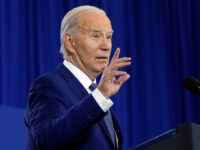
ISRAEL’S Military Strikes in Gaza Spark US Alarm: Humanitarian Crisis Looms
— The U.S. has voiced serious concerns over Israel’s military operations in Gaza, particularly in the city of Rafah. This area is crucial as it serves as a center for humanitarian aid and provides shelter to over a million displaced individuals. The U.S. is worried that increasing military activities could cut off vital aid and deepen the humanitarian crisis.
Public and private communications have been made by the U.S. with Israel, focusing on the protection of civilians and the facilitation of humanitarian assistance. Sullivan, actively engaged in these discussions, has emphasized the need for effective plans to ensure civilian safety and access to essential resources such as food, housing, and medical care.
Sullivan stressed that American decisions will be guided by national interests and values amid this conflict. He confirmed that these principles would consistently influence U.S actions, demonstrating a commitment to both American standards and international humanitarian norms during ongoing tensions in Gaza.
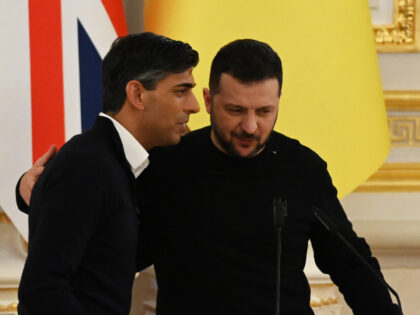
UK’S RECORD Military Aid to UKRAINE: A Bold Stand Against Russian Aggression
— Britain has unveiled its largest military aid package for Ukraine, totaling £500 million. This significant boost raises the UK’s total support to £3 billion for the current financial year. The comprehensive package includes 60 boats, 400 vehicles, over 1,600 missiles, and nearly four million rounds of ammunition.
Prime Minister Rishi Sunak stressed the critical role of supporting Ukraine in Europe’s security landscape. “Defending Ukraine against Russia’s brutal ambitions is crucial not just for their sovereignty but also for the safety of all European nations,” Sunak remarked before his discussions with European leaders and NATO’s chief. He cautioned that a victory for Putin could pose threats to NATO territories as well.
Defence Secretary Grant Shapps emphasized how this unprecedented aid would bolster Ukraine’s defense capabilities against Russian advances. “This record package will equip President Zelenskiy and his courageous nation with essential resources to repel Putin and bring back peace and stability to Europe,” stated Shapps, reaffirming Britain’s dedication to its NATO allies and European security overall.
Shapps further underscored Britain’s unwavering commitment to support its allies by enhancing Ukraine’s military strength which is vital in maintaining regional stability and deterring future aggression from Russia.
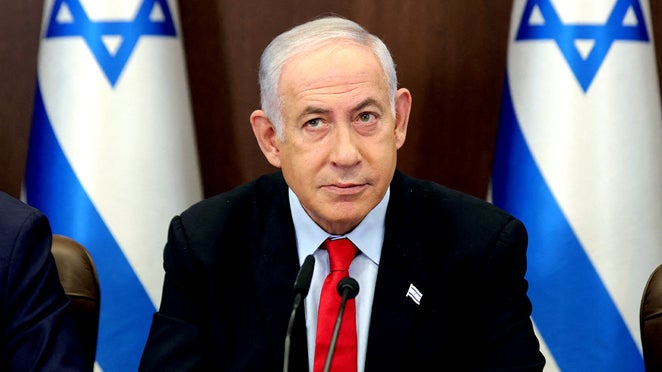
BIDEN’S SHOCK Move: Sanctions on Israeli Military Could Ignite Tensions
— U.S. Secretary of State Antony Blinken is considering imposing sanctions on the Israel Defense Forces’ battalion “Netzah Yehuda.” This unprecedented move could be announced soon and might heighten existing tensions between the U.S. and Israel, further strained by conflicts in Gaza.
Israeli leaders are firmly against these potential sanctions. Prime Minister Benjamin Netanyahu has pledged to defend Israeli military actions vigorously. “If anyone thinks they can impose sanctions on a unit in the IDF, I will fight it with all my might,” Netanyahu declared.
The Netzah Yehuda battalion has been under fire for alleged human rights violations involving Palestinian civilians. Notably, a 78-year-old Palestinian-American died after being detained by this battalion at a West Bank checkpoint last year, drawing intense international criticism and now possibly leading to U.S. sanctions against them.
This development could mark a significant shift in U.S.-Israel relations, potentially impacting diplomatic ties and military collaborations between the two nations if sanctions are implemented.
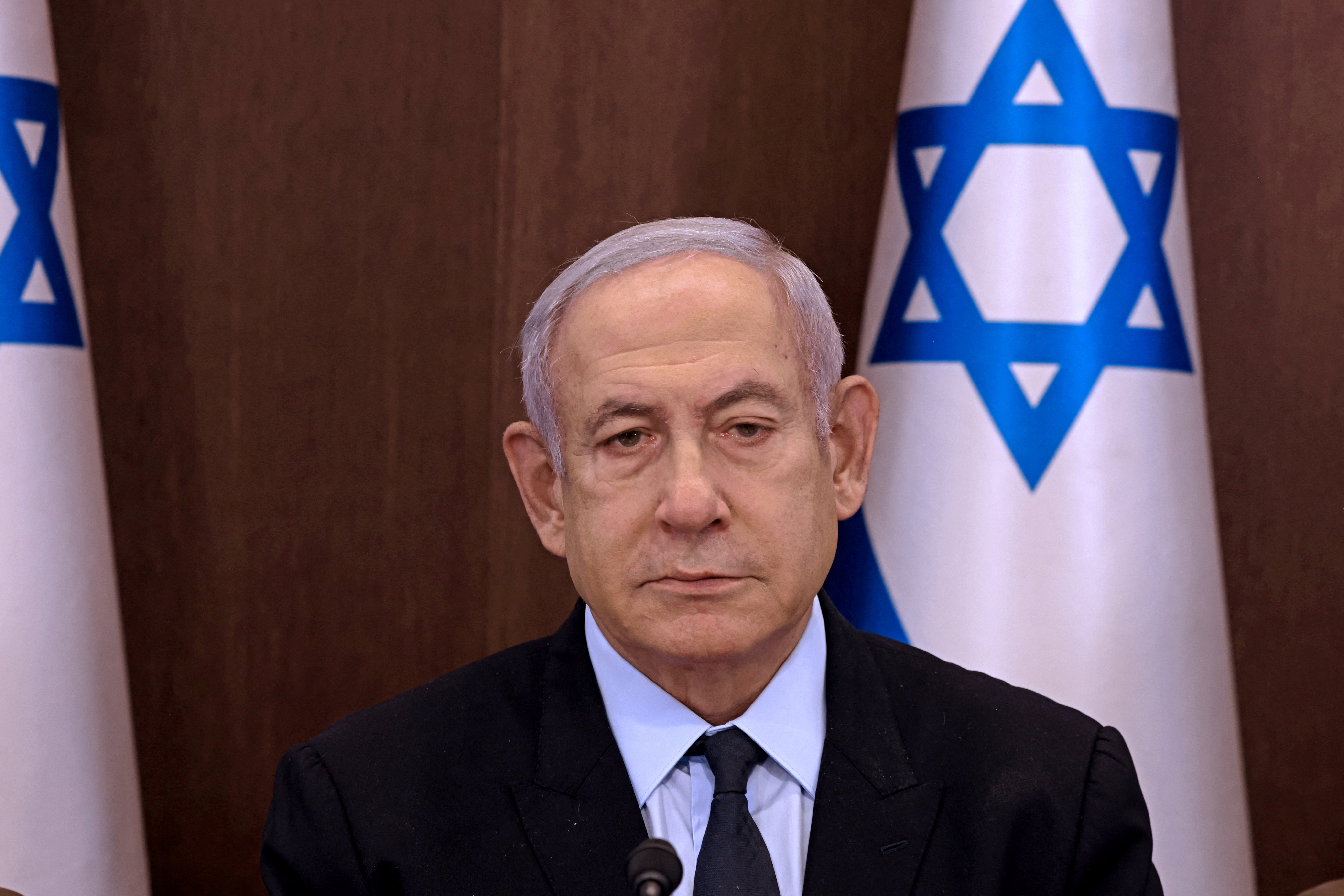
ISRAEL REGRETS Gaza Detainee Treatment: A Shocking Revelation of Military Conduct
— Israel’s government has conceded its misstep in the treatment and subsequent public display of images showing Palestinian men, stripped to their underwear, after being detained by Israeli military in Gaza. These recently surfaced online photos disclose dozens of disrobed detainees, sparking significant global scrutiny.
On Wednesday, State Department spokesperson Matthew Miller confirmed that Israel has recognized its mistake. He relayed Israel’s assurance that such pictures will not be captured or circulated in the future. If detainees are searched, they will promptly receive their clothes back.
Israeli officials defended these actions by explaining that all males of military age found in evacuated zones were held to ensure they weren’t Hamas members. They were disrobed to check for hidden explosive devices — a tactic frequently employed by Hamas during previous conflicts. However, Mark Regev, a senior adviser to Israeli Prime Minister Benjamin Netanyahu, assured on MSNBC on Monday that measures are being implemented to avoid such incidents from recurring.
Regev also highlighted ongoing efforts to identify who took and disseminated the contentious photo online. This episode has prompted inquiries about Israel’s detainee treatment and its strategies for handling potential threats from Hamas operatives concealed among civilians.
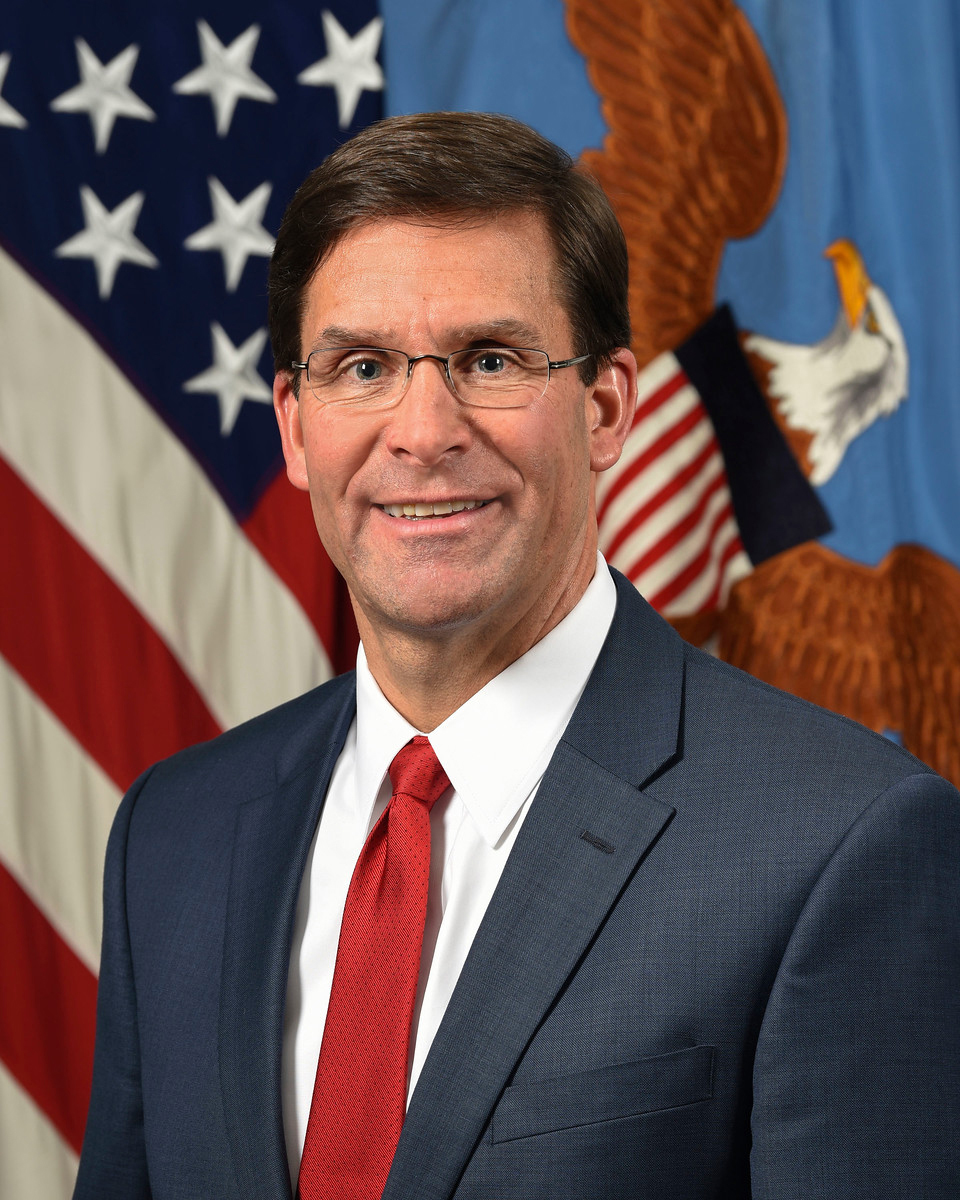
ESPER SLAMS US Response to Iranian Attacks: Is Our Military Strong Enough?
— Former Defense Secretary Mark Esper has openly criticized the U.S. military’s handling of attacks by Iranian proxies on American forces in Syria and Iraq. He considers the response insufficient, despite being targeted over 60 times in just a month by these proxies. These forces are stationed in the region with a mission to ensure ISIS’s lasting defeat, and approximately 60 troops have been injured as a result of these relentless attacks.
Despite launching three sets of airstrikes against facilities used by these proxies, their aggressive actions persist. “Our response hasn’t been forceful or frequent enough... there’s no deterrence if they strike back immediately after we strike them,” Esper shared his concerns with the Washington Examiner.
Esper advocates for more strikes and expanding targets beyond just ammunition and weapons facilities. However, Pentagon deputy spokeswoman Sabrina Singh stands by their actions, claiming that U.S.'s attacks have significantly weakened these militia groups’ access to weapons.
In recent weeks, U.S troops targeted a training facility and safe house last Sunday, struck a weapons storage facility on Nov 8th, and hit another weapons storage facility along with an ammunition storage area in Syria on Oct 26th.
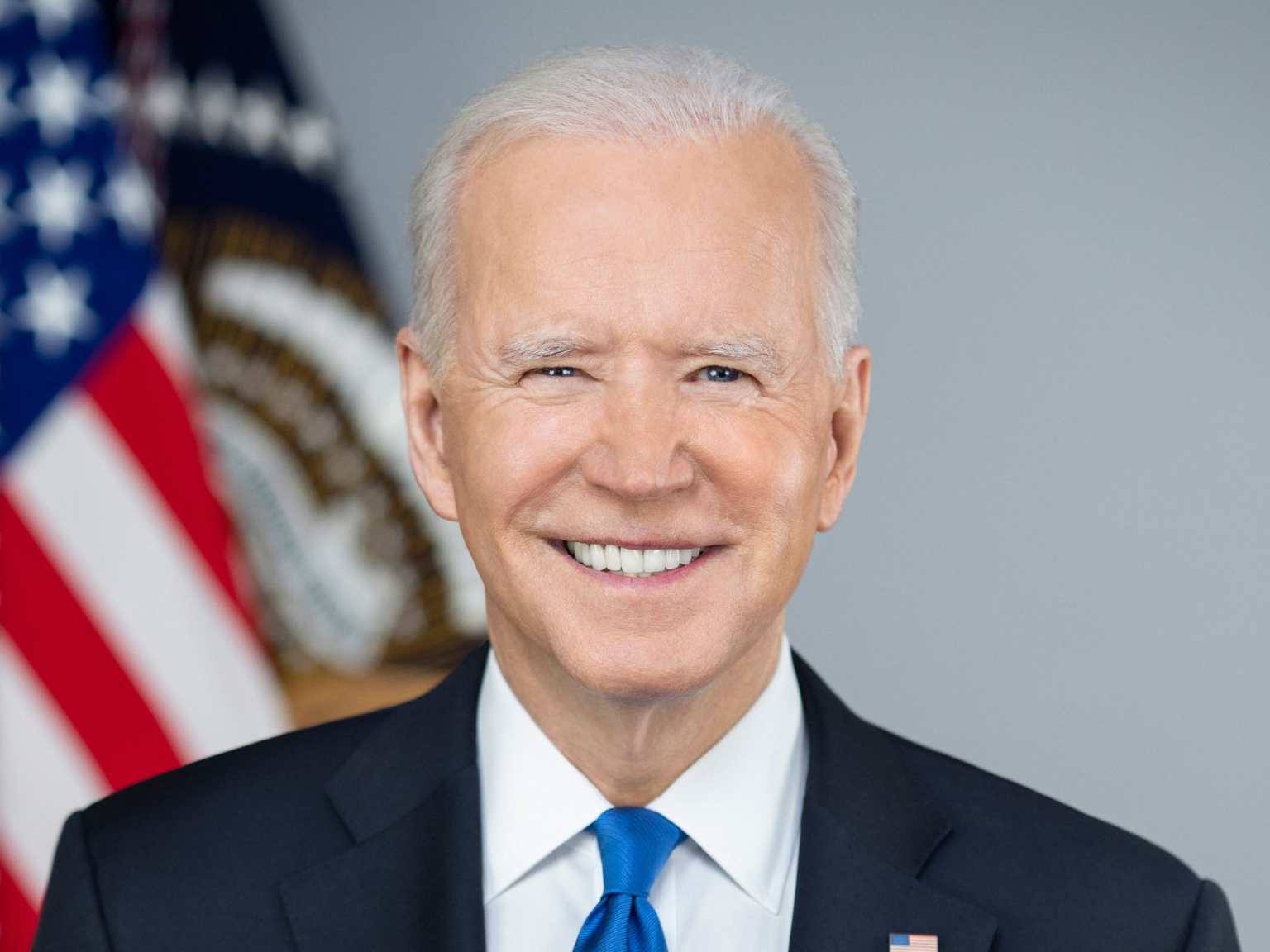
TOP US Military Officers DEPLOYED to Israel: Biden’s Bold Move Amid Gaza Tensions
— President Joe Biden has sent a select group of top U.S. military officers to Israel, the White House announced on Monday. Among these officers is Marine Lt. Gen. James Glynn, known for his successful strategies against the Islamic State in Iraq.
These high-ranking officials have been tasked with advising the Israel Defense Forces (IDF) on their ongoing operations in Gaza, according to National Security Council spokesman John Kirby and White House press secretary Karine Jean-Pierre during Monday’s press briefing.
While Kirby did not reveal the identities of all dispatched military officials, he confirmed that each one possesses relevant experience for the operations currently being conducted by Israel.
Kirby emphasized that these officers are there to offer insights and pose challenging questions — a tradition consistent with U.S.-Israeli relations since this conflict began. However, he refrained from commenting on whether President Biden had urged Israeli Prime Minister Benjamin Netanyahu to postpone a full-scale ground war until civilians could safely evacuate.
CHINA’s MILITARY Might on Display: Taiwan Braces for Intensifying Threats
— China is consistently fortifying its military stations along the coast facing Taiwan, says a report from Taiwan’s Defense Ministry. This development coincides with Beijing escalating its military activities around the territory it claims. In response, Taiwan pledges to strengthen its defenses and keep a close eye on Chinese operations.
In just one day, 22 Chinese aircraft and 20 warships were detected near the island by Taiwan’s Defense Ministry. This is perceived as part of Beijing’s ongoing intimidation campaign against the self-governed island. China has not dismissed using force to integrate Taiwan with mainland China.
Maj. Gen. Huang Wen-Chi from Taiwan’s Defense Ministry emphasized that China is aggressively augmenting its weapons and constantly modernizing crucial coastal military bases. Three airfields in China’s Fujian province — Longtian, Huian, and Zhangzhou — have recently been enlarged.
The surge in Chinese military activity comes after recent challenges to Beijing’s territorial claims by US and Canadian warships navigating through the Taiwan Strait. On Monday, a naval formation led by China’s aircraft carrier Shandong sailed about 70 miles southeast of Taiwan for drills simulating various attacks.
UKRAINE’S DEFENSE Leadership Revamped Amid Expensive Military Jacket Scandal
— In a recent announcement, Ukraine’s President Volodymyr Zelenskyy revealed the replacement of Defense Minister Oleksii Reznikov with Rustem Umerov, a Crimean Tatar lawmaker. This leadership transition follows Reznikov’s tenure of “over 550 days of full-blown conflict” and a scandal involving inflated prices for military jackets.
Umerov, formerly at the helm of the State Property Fund of Ukraine, has been instrumental in prisoner swaps and evacuations of civilians from occupied territories. His diplomatic contributions extend to negotiations with Russia over a United Nations-backed grain agreement.
The jacket controversy came to light when investigative journalists disclosed that the Defense Ministry had procured materials at thrice their usual cost. Instead of winter jackets, summer ones were purchased at an exorbitant $86 per unit compared to the supplier’s quoted price of $29.
Zelenskyy’s revelation came on the heels of a Russian drone strike on a Ukrainian port that led to two people being hospitalized. The U.S. Department of Defense chose not to comment on this shift in leadership.
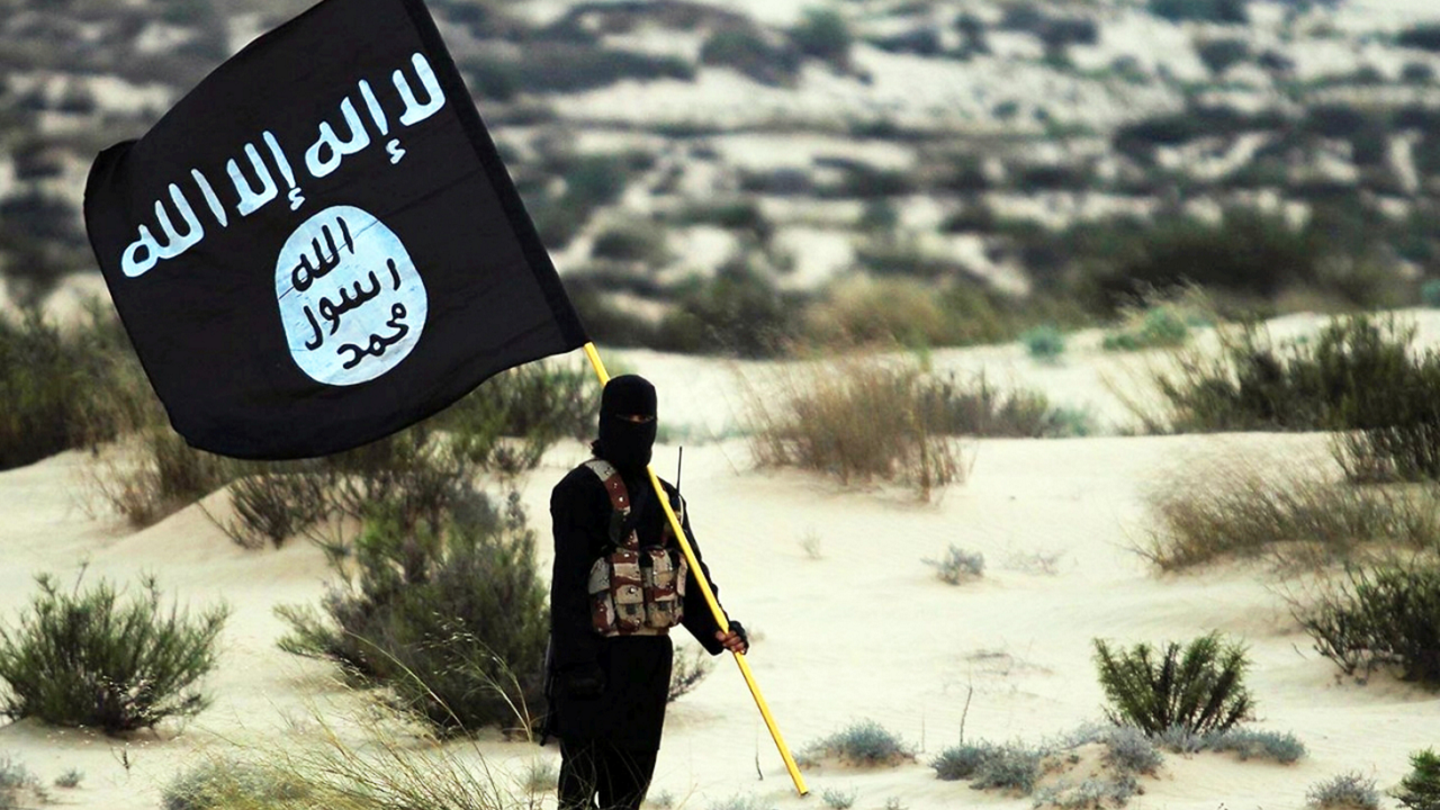
US Military Urges End To Syrian Civil War Amid ISIS Resurgence Fears
— US military officials have urged for a halt to the intensifying civil war in Syria. They fear the ongoing conflict could fuel a revival of ISIS. The officials also criticized regional leaders, including those in Iran, for allegedly exploiting ethnic tensions to fuel the war.
Operation Inherent Resolve is closely monitoring the situation in northeast Syria," stated the Combined Joint Task Force. They emphasized their commitment to working with the Syrian Defense Forces to ensure the lasting defeat of ISIS, supporting regional security and stability.
The violence in northeast Syria has led to calls for peace and stability in the region, free from the threat of ISIS. The fighting between rival groups in East Syria, which started on Monday, has already claimed at least 40 lives and left dozens injured.
In related news, the Syrian Democratic Forces (SDF) dismissed and arrested Ahmad Khbeil, also known as Abu Khawla, on charges related to multiple crimes and violations, including drug trafficking.
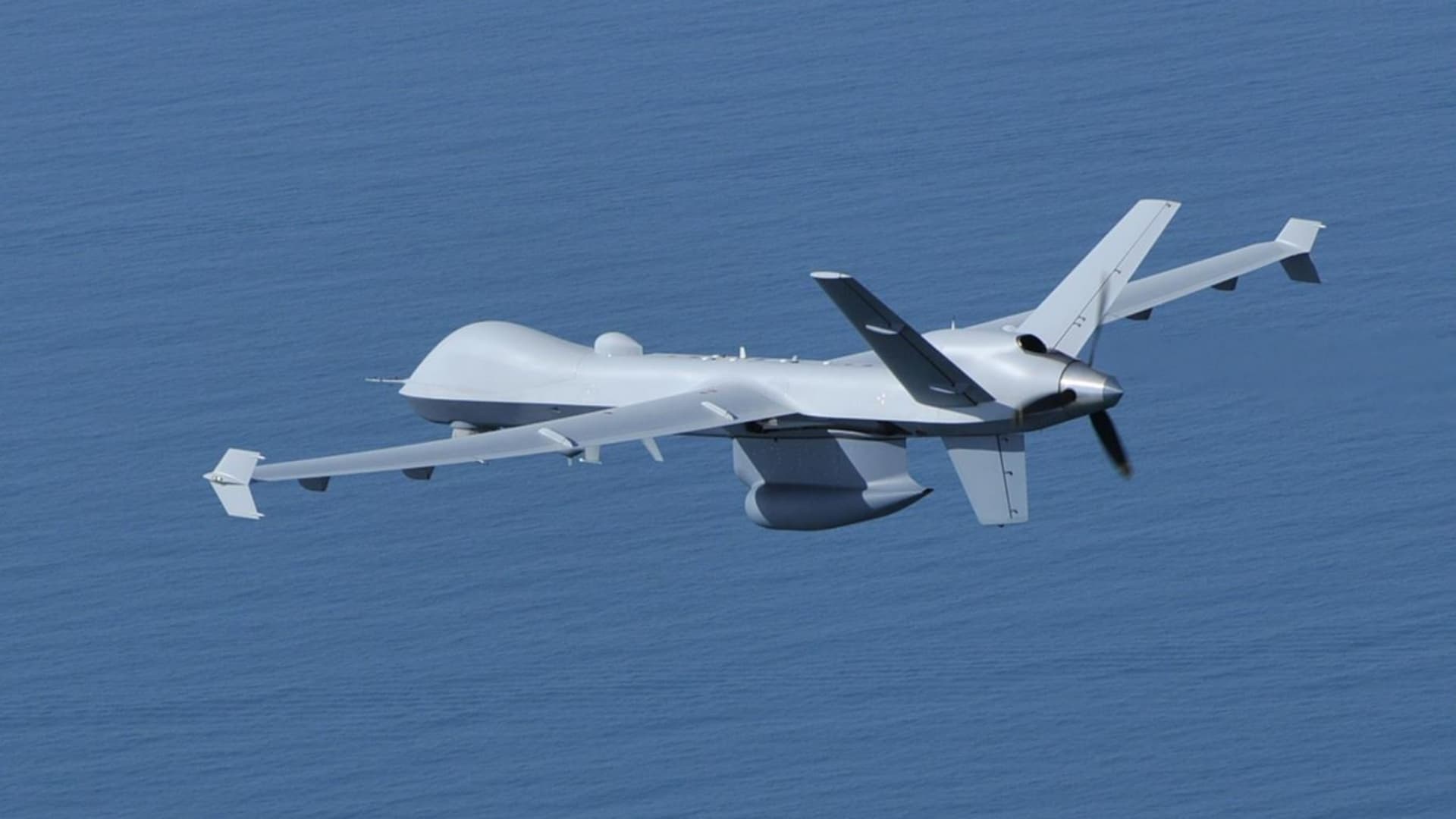
US Drone Crashes into Black Sea After Contact With RUSSIAN Jet
— According to government officials, a US surveillance drone, conducting routine operations in international airspace, crashed into the Black Sea after being intercepted by a Russian fighter jet. However, Russia’s defense ministry denied using onboard weapons or coming into contact with the drone, claiming it plunged into the water due to its own “sharp maneuvering.”
According to a statement released by US European Command, the Russian jet dumped fuel on the MQ-9 drone before striking one of its propellers, forcing operators to bring the drone down into international waters.
The US statement described Russia’s actions as “reckless” and “could lead to miscalculation and unintended escalation.”

Video
ISRAEL Under SIEGE: Military Report Exposes Shocking Vulnerabilities
— Israel’s military has released a report on the October 7th Hamas attacks, highlighting intelligence and readiness failures. This attack was one of the deadliest on Israeli soil, resulting in over 1,200 deaths. The report comes after a ceasefire agreement aimed at ending more than 15 months of conflict.
Hamas militants broke through Israeli defenses, targeting communities and military sites. In response, Israel launched extensive operations in Gaza. Critics argue these actions worsened humanitarian conditions in the enclave. Despite efforts to halt aggression, Israel faced ongoing rocket attacks causing widespread disruption.
A tentative ceasefire mediated by Qatar and the U.S. offers a fragile pause in hostilities with a phased plan for hostage exchanges between Hamas and Israel. This deal aims to stop fighting and start structured dialogue for long-term peace in the region.
Israel’s leadership is focused on addressing vulnerabilities exposed by the attacks as urged by the military report recommending strong security measures to prevent future breaches. International stakeholders emphasize humanitarian aid and fair negotiations to turn this ceasefire into lasting peace.
More Videos
Invalid Query
The keyword entered was invalid, or we couldn't gather enough relevant information to construct a thread. Try checking the spelling or entering a broader search term. Often simple one-word terms are enough for our algorithms to build a detailed thread on the topic. Longer multi-word terms will refine the search but create a narrower information thread.
